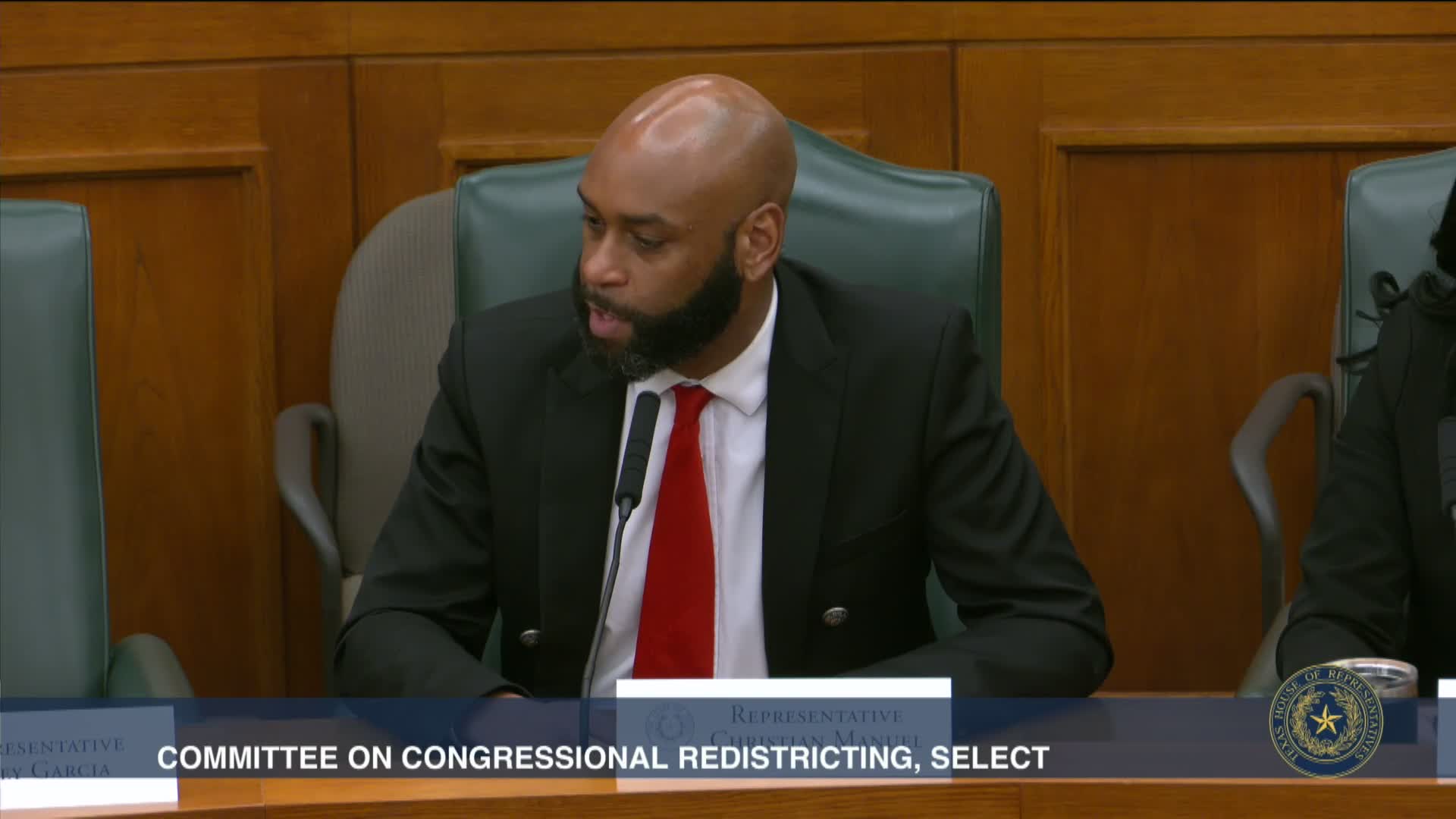Lawmakers Address Community Concerns Over Gerrymandering of Black Districts
August 02, 2025 | All Committees 2025, HOUSE OF REPRESENTATIVES, Legislative, Texas
This article was created by AI summarizing key points discussed. AI makes mistakes, so for full details and context, please refer to the video of the full meeting. Please report any errors so we can fix them. Report an error »

During a recent meeting of the Texas House of Representatives' Select Committee on Congressional Redistricting, a passionate plea was made regarding the impact of redistricting on historically marginalized communities. A representative expressed deep concern over the potential harm caused by altering district boundaries, particularly for communities that have long been underrepresented.
The representative highlighted the fears and struggles of residents in their district, emphasizing that many feel neglected and scared as political decisions threaten their livelihoods and representation. They drew parallels to past political movements, warning that ignoring the voices of these communities could lead to significant repercussions, similar to the fallout experienced during the Tea Party era.
A key point of contention was the use of outside legal teams to draft redistricting maps, which the representative argued could perpetuate systemic racism and disenfranchisement. They pointed out that the proposed changes could dismantle historically black districts, which have been represented by black women for many years, thereby stripping away the political power and resources these communities rely on.
The representative urged their colleagues to consider the real-life implications of their decisions, stressing that breaking up communities of interest could lead to economic and social harm. They called for empathy and understanding, asking fellow lawmakers to truly listen to the concerns of their constituents before moving forward with any legislation.
In conclusion, the meeting underscored the critical need for lawmakers to balance political strategy with the well-being of their communities, reminding them that the stakes are high for those who feel their voices are at risk of being silenced. As redistricting discussions continue, the call for thoughtful consideration of community impact remains paramount.
The representative highlighted the fears and struggles of residents in their district, emphasizing that many feel neglected and scared as political decisions threaten their livelihoods and representation. They drew parallels to past political movements, warning that ignoring the voices of these communities could lead to significant repercussions, similar to the fallout experienced during the Tea Party era.
A key point of contention was the use of outside legal teams to draft redistricting maps, which the representative argued could perpetuate systemic racism and disenfranchisement. They pointed out that the proposed changes could dismantle historically black districts, which have been represented by black women for many years, thereby stripping away the political power and resources these communities rely on.
The representative urged their colleagues to consider the real-life implications of their decisions, stressing that breaking up communities of interest could lead to economic and social harm. They called for empathy and understanding, asking fellow lawmakers to truly listen to the concerns of their constituents before moving forward with any legislation.
In conclusion, the meeting underscored the critical need for lawmakers to balance political strategy with the well-being of their communities, reminding them that the stakes are high for those who feel their voices are at risk of being silenced. As redistricting discussions continue, the call for thoughtful consideration of community impact remains paramount.
View full meeting
This article is based on a recent meeting—watch the full video and explore the complete transcript for deeper insights into the discussion.
View full meeting
